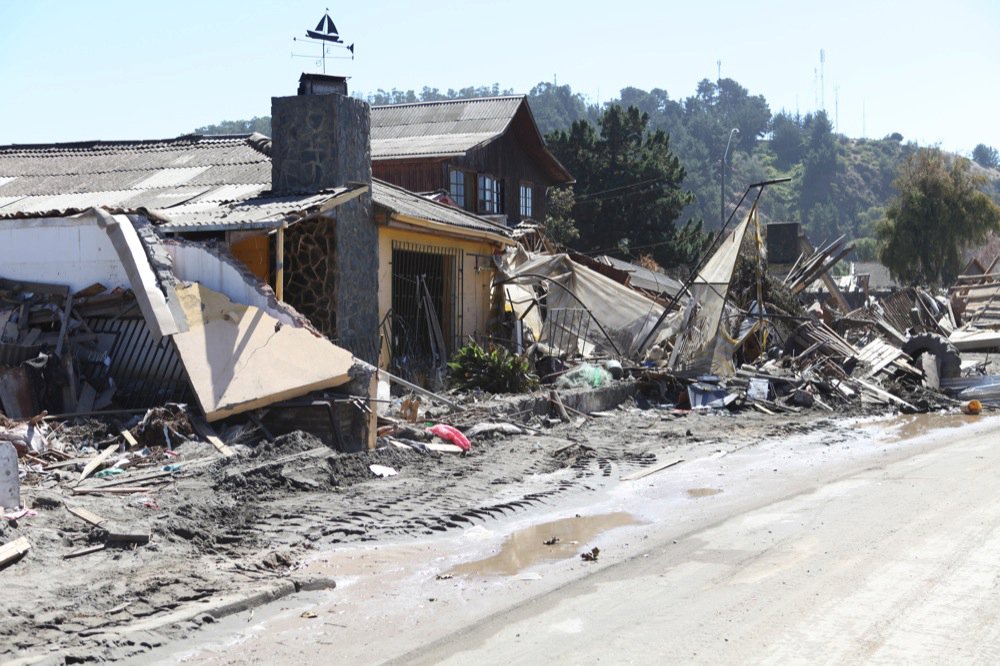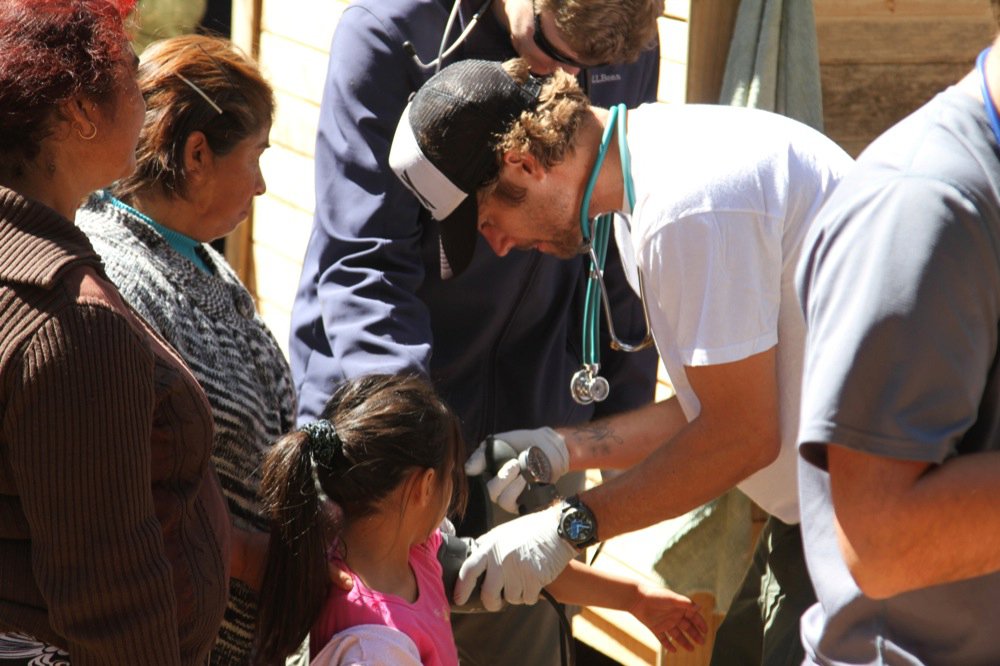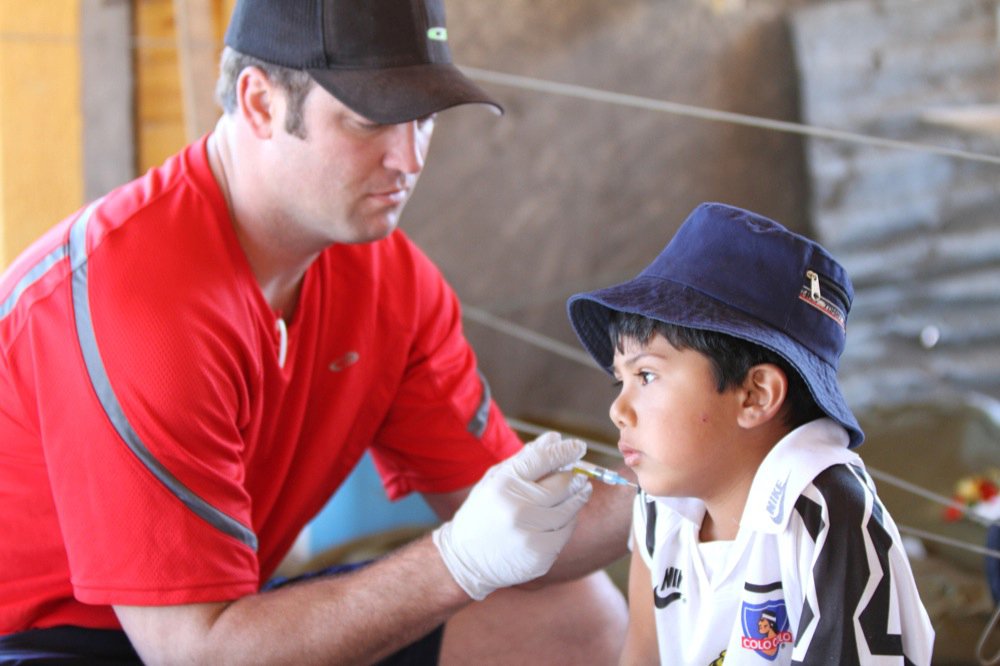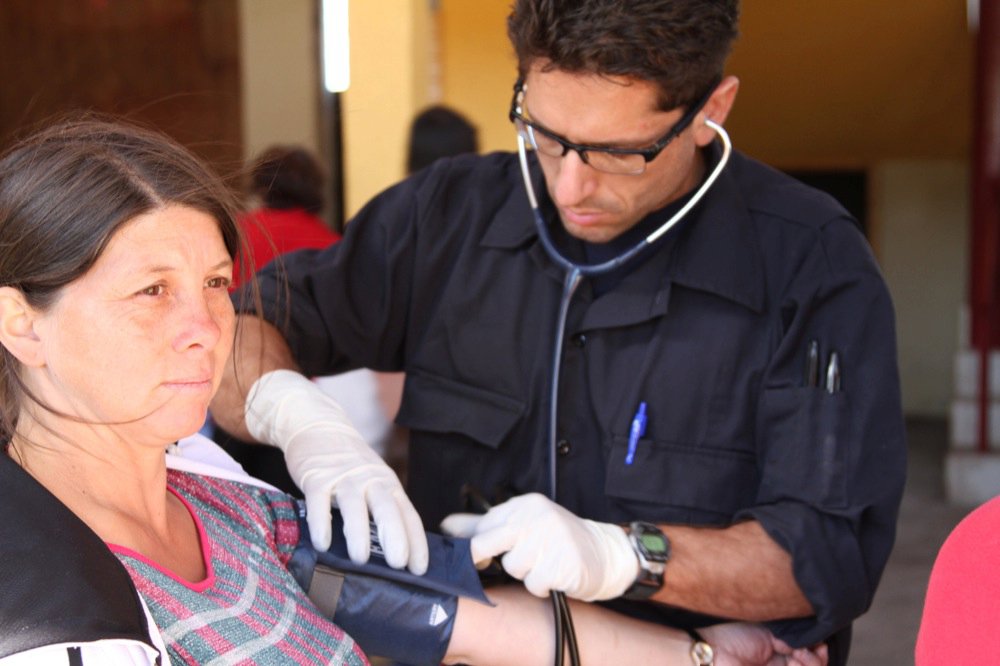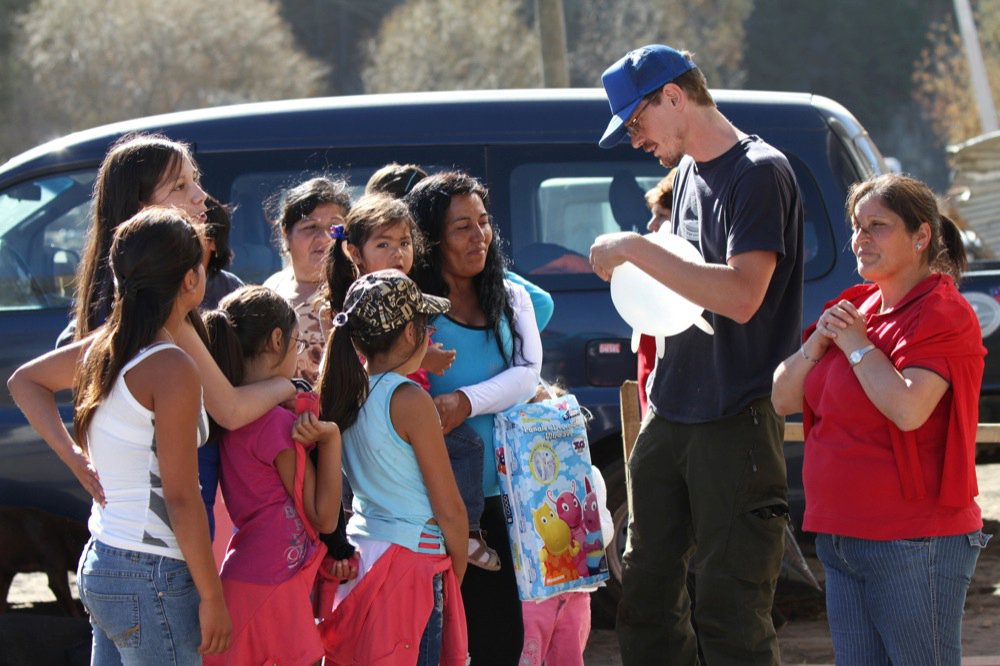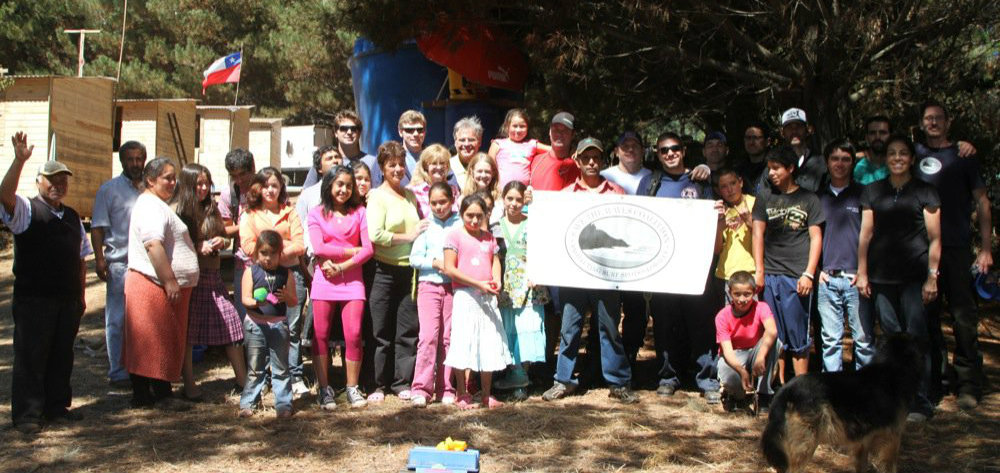
With the Haiti earthquake happening in January, no one anticipated that another devastating event would occur soon after in another part of the world. But on February 27th, 2010, it did. An 8.8 magnitude quake hit, followed by several tsunamis. REACH OUT WorldWide went on its second mission just a few weeks after its first.
James Pearson’s story:
When we first heard about the earthquake in Chile, we immediately started researching what medical supplies and necessities were needed. In the first few days following the news, reports we read made it seem as though everything was taken care of, and the last thing we wanted to do was show up and be in the way. However, it became obvious pretty soon after that there was a definite need for the services we could provide
Our goal: To find remote areas that weren’t receiving as much attention as the heavily populated areas. We reached out to people we thought could help, and after a series of emails and phone calls, we were put in contact with Josh Berry from the Save the Waves Coalition (savethewaves.org). Josh and Save the Waves have been in Chile for the past few years. He has great relationships with the locals, as well as a deep knowledge of the affected coastline. He was the perfect guide. Prior to our team arriving, Josh went to local clinics and hospitals and put together a list of what was needed. He forwarded the list to us and we quickly collected what we could.
Once we had our supplies, REACH OUT put together a team of 12 that included fireman, paramedics, EMT’s and a medical unit led by Gale Lawrence, M.D., a family doctor in Seal Beach, Calif. The team arrived in Santiago, Chile on the morning of March 13, 2010, with more than 30 duffel bags filled with medical supplies.
After connecting with a local Chilean guide, team leaders determined that aid was most needed in the coastal areas devastated by a series of earthquake-generated tsunamis. We traveled south to the small coastal village of Curanipe, where we could consult with local contacts. After 7 hours of driving through agricultural fields, washed-out bridges and gravel-filled cracks in the road, we arrived. Once in Curanipe, we realized that the tsunami devastation was catastrophic. Whole villages had been swept away, leaving only partial foundations in many places. Sticks and rubble marked the main streets and neighborhoods that had thrived just weeks before. It was clear that thousands along the coast had been left homeless and without access to clean water, food or proper medical treatment.
In Curanipe, the REACH OUT team met with Josh Berry. The local contacts provided by Josh provided us with a hostel where base camp could be established. After a team meeting, supply assessment and continuing local inquiries, it was clear that we needed to implement a strategy utilizing mobile medical clinics in the surrounding communities to provide the most effective aid.
The next morning, we drove north up the coast and continued to be shocked by the power and destruction of the ocean. Homes had been flattened with only matchstick-size splinters providing evidence of their existence. Piles of personal possessions were strewn about the land and smashed boats lined former boulevards. The devastation left each of us with heavy hearts and a strange silence, coupled with an eagerness to provide care.
We arrived at a hillside camp, quickly set up our mobile medical clinic and immediately began treating patients. Many of the children were afraid at first, but soon lined up to be seen by the medical team. Dr. Lawrence and the team administered much-needed tetanus vaccinations and first aid. Later, a local physician arrived and we provided her with additional vaccines for those who were searching the rubble.
Once the team treated everyone in the hillside camp, we continued north to Constitución, a larger city near the epicenter. Again, the situation was dire. Construction rebar jutted dangerously into the air, flattened homes and businesses covered the streets and rubble continued endlessly block after block.
We located one of the few structures that had not been completely destroyed and quickly set up a medical clinic. We worked for 9 additional hours, fueling ourselves with granola bars and energy gu. The team tended to a variety of medical needs including diarrhea, dehydration, skin rashes, lacerations, burns, broken bones, emotional trauma and more. We provided the people with gloves and tarps, toothbrushes, creams for their rashes and medication for their illnesses.
Every person we treated was grateful, polite and kind. They had nothing; no clothes, no food and no possessions, yet they continued to smile. The town was flattened, but the spirit of the people was not. I remember thinking to myself how lucky I was to be a small part of their lives. I was so honored to be able to help and provide hope. I was truly humbled by their spirits.
In my limited Spanish, I spoke with one woman that had been waiting patiently to see the doctor. She recalled that on the night of the earthquake, she was awakened around 3:30 am by the extreme shaking. She attempted to stand and run, but the earth swayed so much under her feet that she couldn’t gain her balance. She recalled the words of a geologist friend that had visited her years earlier. “If there is an earthquake so strong that you can’t stand up, run for the hills. You live in an area prime for a tidal wave,” he told her. She told me she saw the ocean receding and it was the lowest tide that she had ever seen. When it came rushing back toward the shore, the noise was intense. Only the snapping of timber and buildings interrupted the deafening roar of the water. “That’s when the screams came,” she told me. Her terrifying story was one of many.
At the end of each day, we returned to the hostel and feasted on potatoes, carrots, cabbage and pear juice. The meal had been presented graciously on the hostess’ finest serving dishes, despite the fact that she lost so much in the quake. The gesture resonated the vitality of the Chilean people. Exhausted, we fell asleep quickly, awaiting whatever our next day of service would bring.
The following day, we utilized the knowledge of the local people to guide us in our search for more patients and others in need. We found small pockets of people in tent-cities. Our routine remained the same, but our efficiency and organization improved dramatically. Each team member instinctively knew his or her place within the team unit. The paramedics began patient assessment, water filter demonstrations were given and Dr. Lawrence treated patients with an efficiency made possible by the efforts of her well-trained supporting team.
The view from the clinic was stunningly beautiful. The now-peaceful ocean glistened from our hilltop vantage point. We continued treating patients for diarrhea, rashes, sore throats, pneumonia, trauma and a slew of other complications. Quiet and kind, they thanked us for helping them, hugged us for our generosity and provided blessings and prayers for our continued mission.
We returned to Constitución, where a local radio announcement advertising our presence brought us hundreds of additional patients. I witnessed one woman run up to our pharmacist, Marcee Camenson, rapidly yelling in Spanish and flailing her arms vigorously. At the time, we thought she was angry and possibly dangerous. One of our paramedics, Kyle Anderson, stepped in and interpreted what she was saying. She had apparently mistaken Marcee for Dr. Lawrence and was joyously giving thanks for repairing her shoulder. She had been injured in the tsunami and had been in pain, but was now completely pain free. Marcee hugged her and returned her wide smile.
Inside the clinic, I watched the medical team work with patients of all ages, from babies to elderly. The team was busy taking vital signs, receiving patient histories and complaints, giving antibiotics and administering care. Each member gave gentle care and genuine interest in each individual that was treated. Their efficient manner made me extremely proud to be part of the team.
Exhausted but filled with a unique energy to continue, we sat down to another dinner of salad, potatoes, carrots, a bit of meat and pear juice. Shortly after eating, we experienced an aftershock. I was amazed at how calm our team was; although the entire hostel swayed heavily, there was little panic. Later, we discovered that the real damage from the aftershocks was emotional. It reminded the people of the horrors of the initial earthquake and tsunami.
The next day, we took photos and packed our bags, then drove up the coast. The roads were missing giant pieces of asphalt that were lost to the tidal wave. We saw more flattened homes, broken boats and areas that had were completely destroyed. The traces of homes and former lives were hard to see, but the feeling of devastation was still clearly present.
After visiting several more small villages, we left our remaining medical supplies with a local physician in the community medical center. When he learned that he was to receive two boxes of antibiotics and not just one, he almost broke down. “Two boxes? Really? Two boxes?” he repeated in joyous disbelief. After many photos of the team, we packed up and drove to Santiago.
Arriving at the home of a local doctor about midnight, we were treated to a barbeque in the grandest style. Despite our protests about how dirty we were, we were escorted into his home and told that his home was our home. The wine, tomatoes, meat, olive oil and empanadas were delicious. At the end of the meal, our host thanked us for helping his people. He said “I thank you for coming all this way to help my people. I am honored to give you this barbeque because the people you helped cannot. Chile thanks you. Thank you, thank you, thank you.”
Throughout the five-day trip, the REACH OUT team traveled to many local hillside communities providing aid and medical treatment, while Save the Waves dispersed water filters that provided hundreds with fresh water. I was humbled and grateful to be part of the experience.

